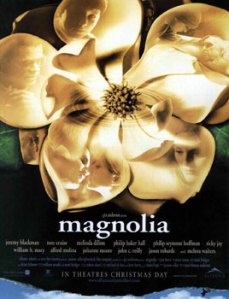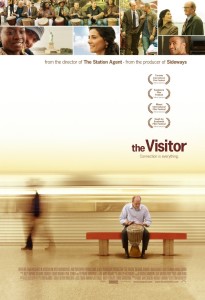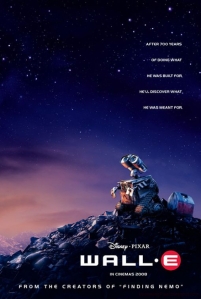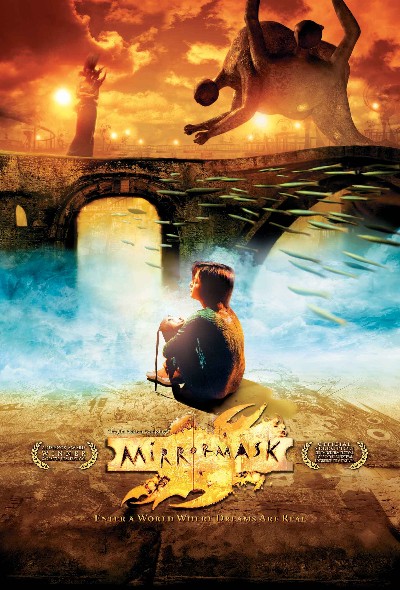I just read a wonderful post on a blog I just discovered called “One Baha’i’s Approach” that shares insight into watching films with a spiritual eye that I thought you guys might enjoy to see why I do what I do. I highly recommend the blog, and you can find it here, and the original post here.
Movies
I recently asked you, dear Reader, for your thoughts on ideas for topics I could try and address. Many wonderful suggestions came in, but one, in particular, was one that I could immediately write: Movies.
The idea was presented in the context of writing a review of a movie in light of the Baha’i teachings, but I’m not sure I want to do it quite like that. Instead I will talk a bit about my own approach to movies, in light of the Baha’i teachings.
My guidance comes mainly from two quotes, one by Baha’u’llah and another from Shoghi Effendi. The first, found in the Epistle to the Son of the Wolf ,refers to arts and sciences, saying that they should be “productive of good results, and bring forth their fruit…conducive to the well-being and tranquility of men“. This quote alone radically changed the way that I approached my own work as an artist.
The second quote is found in The Advent of Divine Justice. In that text, Shoghi Effendi speaks of the three spiritual weapons we have at our disposal in our fight “to regenerate the inward life of their own community, and… to assail the long-standing evils that have entrenched themselves in the life of their nation.” The three weapons, as I’m sure you know, are “a high sense of moral rectitude in their social and administrative activities, absolute chastity in their individual lives, and complete freedom from prejudice in their dealings with peoples of a different race, class, creed, or color.”
The second of these three is further defined by the Guardian in the following quote: “Such a chaste and holy life, with its implications of modesty, purity, temperance, decency, and clean-mindedness, involves no less than the exercise of moderation in all that pertains to dress, language, amusements, and all artistic and literary avocations.”
It was this second quote that got me to re-examine those arts to which I subjected myself, as he particularly mentions “all artistic and literary avocations“. Now, don’t get me wrong. I do not believe that he is telling us to avoid movies, or anything like that, but just to be more selective, recognizing the influence that they can have upon us. I love a good fantasy novel, or a fine science fiction movie. In fact, I even enjoy a fun shoot-em-up action adventure movie, too. (Shocking, I know, but true.)
The key word in that second quote is, to me, “moderation“.
The question now is, “How does this effect my movie-going?” Easy. It makes me examine each movie after I see it, explore the motives and morals within it, and see how it effects me as a person. Now, I believe that I get far more out of every movie I watch, and every book I read, than I did before.
This also gets passed on to those I work with.
For years now, whenever I take a group of youth to a movie, I willingly take them to see whatever movie they want, on condition that we can talk about it afterwards. A two-hour movie? I want at least thirty minutes of conversation. And during that time we explore the story and motives of the characters, framing the whole thing in the context of virtuous development, and the Baha’i teachings.
Conclusions? Well, I have to admit that I used to love horror movies, but now have absolutely no desire to see them any more. I have not found anything worth the time invested in seeing them. Although I don’t criticize anyone for watching them, they are just not for me. My time can be better spent elsewhere.
I have also come to love some of the action movies even more. Why? Because it gives a lot more room for discussion of motives, and allows a great deal of exploration in how we would react to similar circumstances. Now I don’t expect to ever find myself hiding in a building that is being taken over by terrorists intent on robbing a bank, or having to jump on a moving train to try and save someone from being blown to bits by a bomb, but I have found myself reacting instantly to seeing people getting beaten to death by gang members on the street. This little exercise of asking myself what I would do in such a situation allowed me the ability to draw the attackers away long enough for the victim to survive (without getting killed myself).
Some of the most enjoyable movies I have seen are ones that I was “dragged” to by a group of teens who thought I would never want to see them. They figured that those movies just weren’t my type, whatever my type may be. But I enjoyed them, and we had a very fruitful discussion afterwards.
The teens also told me later that these discussions have changed the way they watch movies, television, and on and on. They are far more selective, and always ecplore it afterwards, no longer content to view them as mere entertainment.
Going back to the first quote, in which Baha’u’llah tells us the purpose of the arts, I began asking myself if a particular work was conducive to my well-being and tranquility. I didn’t expect to only enjoy works that put me in a drug stupor, but looked at that in a broader context. Did they lead me to tranquility? Did they improve my well-being? If not, why was I subjecting myself to it?
By looking at the overall purpose of the arts, I found myself in a better position to decide whether or not I wanted to take the time to view a particular work. Now that said nothing of the merit of the work itself, just whether or not I wanted to take the time to find out.
The second quote, about absolute chastity being related to artistic endeavours, made me further examine what I watched, read or listened to.
These two quotes also helped me better refine how I wanted to spend my time on my own artwork, but that’s probably better suited for another article.
Instead, I’d like to just take a moment to look at an example, Lord of the Rings. While I could go into the artistic merits of the film, or how they used so many different artisans to create the world, I, instead, want to look at one part of the story. Or actually, one part not of the story: the bad guy.
This is a story that does not focus on the bad guy. It focuses almost completely on the good guys, and their epic struggle. You never really see the bad guy; he’s always just this big eye in the distance.
Too often in artistic works, the artist focuses almost exclusively on the bad guys, or at least spends a considerable time on them. They get into the minds of these people, and really, do you want to get in there?
But Tolkien focuses on the good guys. He gets into their headspace, and brings us with him. You feel their fears, their concerns, and their courage. And that is a space I want to get into. Don’t you?
So next time you read a book, or watch a movie, look at these two quotes again and see how they apply. It’s a wonderful experiment that I will explore more and more in the future.









